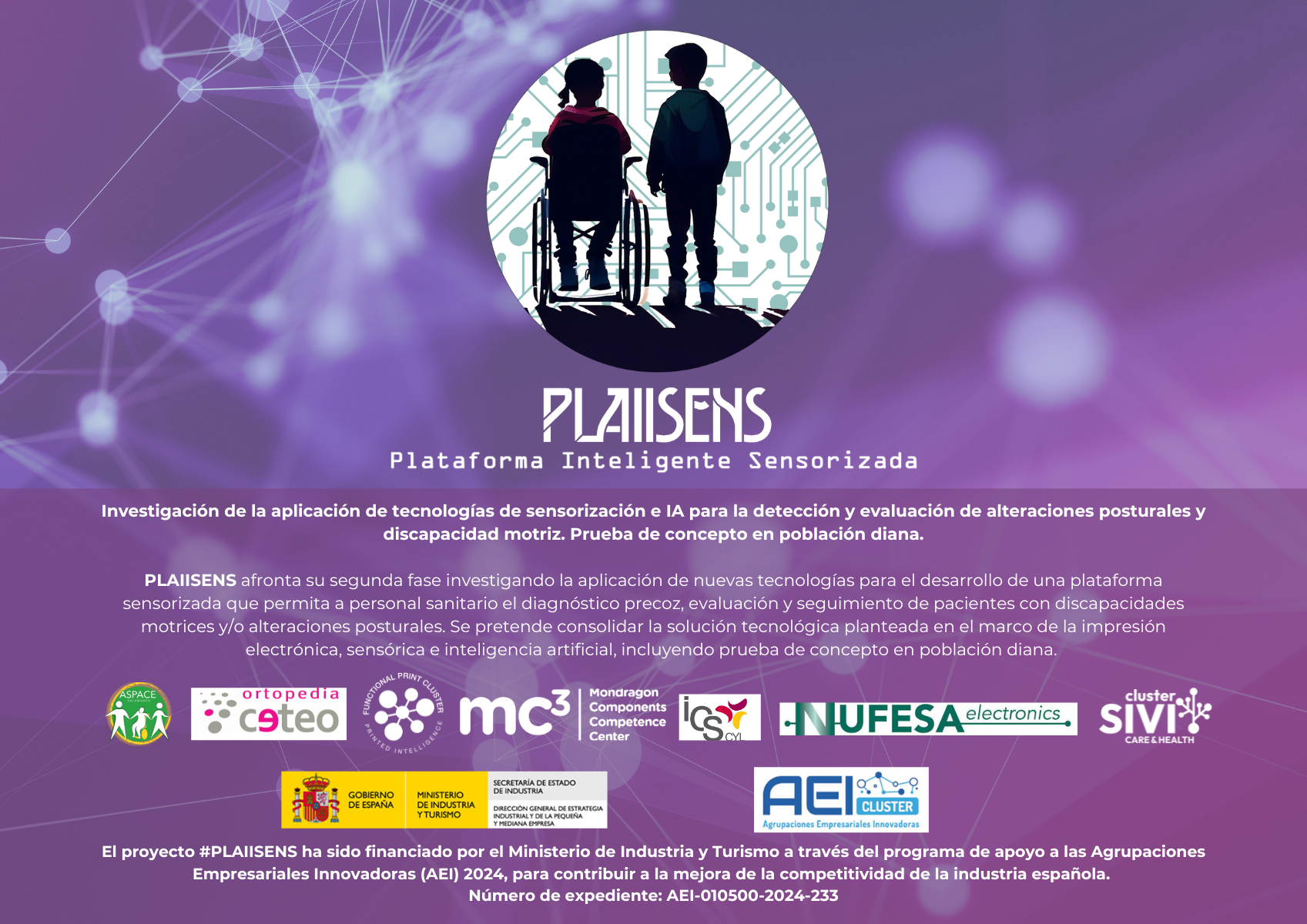PLAISENS faces the challenge of researching the application of 4.0 technologies for the future development of a sensorized platform that can be available to health personnel for the early diagnosis, evaluation and monitoring of patients, especially the child and adolescent population, with motor disabilities and/or postural alterations. The project aims to explore a technological solution based on the joint use of electronic printing, sensors and artificial intelligence as a demonstrator of the technology’s capabilities.
The first phase of the project focused on the research of acquiring the knowledge and aptitude necessary for the subsequent development of a sensorized platform for detecting pressure of the body of the person in ventral and dorsal recumbency, as well as in sitting, associated with the generation of software that collects this data for evaluation and support the decision of the health professional.
PLAISENS: Intelligent Sensorized Platform
PLAISENS investigated to facilitate greater objectivity to these data to provide a reliable tool to assess the risk of developing postural alterations and psychomotor retardation, the evolution of these alterations in the context of the maturation of the central nervous system (CNS) and the efficacy and effect of specific therapeutic actions at specific times, based on increasing the symmetries in the supports to improve the postural and orthopedic situation of the patients.
The application of technologies based on capacitive and resistive sensors was studied, which will be printed using electronic printing technologies, with the aim of allowing in the future to manufacture devices in a simple and cheap way in order to be able to deploy the use of these devices in the social and health environment.
In addition, the tool aims to support professionals in evaluating the effects of therapies on the patient. To this end, the implementation of a data comparison system will be analysed using various tools (Big Data, Machine Learning, neural networks, etc.) generating the algorithms that allow the desired services to be provided and that enable the implementation of an AI.
PLAIISENS: second phase of the project
The project is facing its second year of development, following the planned plan. During this year, PLAIISENS will continue to research the application of new technologies for the development of a sensorized platform that allows health personnel to diagnose early, evaluate and monitor patients with motor disabilities and/or postural alterations.
This second phase of the project aims to address technological and clinical challenges. In terms of technological challenges, the design of the project aims to address the technological solution proposed within the framework of electronic printing, sensor with the implementation of artificial intelligence (AI).
In relation to the clinical challenges, on the one hand it is intended to validate the platform by expanding the database in all population groups and making the clinical equivalence of these with the postural, functional and evolutionary situation of the patient, with the preparation of a technical report of clinical utility and on the other hand to analyze the needs, resources and training of health personnel, as well as required ethical-legal regulations to ensure the real implementation of the solution in health environments.
The Cluster of Innovative Solutions for Independent Living (SIVI) coordinates this project, which has the participation of our partners ASPACE Salamanca,MC3 Mondragon Components Competence Center (previously under the name of Stirling Centre), ICSCyL and CETEO Orthopedics, as well as the Clúster Functional Print and the company NUFESA Electronics.

This project has been financed by the AEI (Innovative Business Associations) line of aid from the Ministry of Industry and Tourism.
File Number: AEI-010500-2024-233



